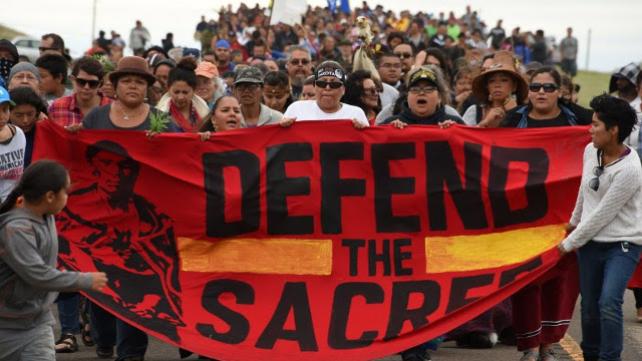
Muslims are facing incredible challenges across the globe. The cycle of war-terror-hate has engulfed the world, resulting in the deaths of about four million people, devastating seven countries, and producing the largest number of refugees since the World War II. It has also created an environment in which Muslims and other minorities of different faith are facing tremendous difficulties.
Muslims in America have responded to this pressure by adopting one of these strategies:
-
Donating billions of dollars in relief for the refugees. 1.3 billion just for the Syrian refugees.
-
Condemning Terrorism.
-
Doing open houses and telling their neighbors that Islam means peace.
This message was a challenge to the Pre-Islamic Arabia, which was caught up in a vicious cycle of warfare. Prophet Muhammad survived multiple assassination attempts, while his followers were murdered and tortured.
-
Approaching each and every individual with his message
-
Developing coalitions and alliances on the common ground
… he devoted his attention to building up a peaceful coalition of tribes and achieved victory by an ingenious and inspiring campaign of nonviolence. When he died in 632, he had almost single-handedly brought peace to war-torn Arabia.
This constitution, called Sahifa and Wasiqa in Arabic, was a set of treaties which he negotiated among all groups. He called all people of Madinah, including Muslims, Jews, Christians, and pagans, "Ummah” or “One Nation” in this historic charter. They had a right to have their own laws, their own courts, and full freedom to practice their religion.
Coalition building was the primary strategy of the Prophet in establishing God’s commandment of helping people stand up and establish peace, justice, fairness and equity in the society.
It was not war but peaceful coalition building which achieved peace. Even when enemies came attacking the peace sanctuary of Madinah, the actual battles were limited to 6 days and not more than 300 people died on both sides over a period of 13 years. Muslims were so much concerned about maintaining peace that they were actually not willing to fight. This is where the God’s commandment came for Muslims to stand up defend their peace sanctuary.
Muslims consider this society, resulting from coalition building, to be the ideal period of Islam.
As the Prophet was leaving this world, in his last sermon, he asked those who are present to convey his message to those who were not present there. That is how he transferred his Prophetic message to you and I.
For this reason it is critical for Muslims all around the world, who are the number one victims of this vicious cycle of war-terror-hate, to individually and organizationally adopt the following two strategies by devoting their time and financial resources to it:
-
Adopt the goal of standing up for the Prophetic call of establishing peace, fairness, and socio-economic justice in the society
-
Adopt the Prophetic strategy to develop, establish, and sustain coalitions in the society.
Now is the time for Muslims to think beyond Masjid, school, and disaster relief, and develop stronger interactions with the society using Prophetic strategies.
It is not going to be easy, but it can be done. So let us plan our time and our money accordingly.



Add new comment